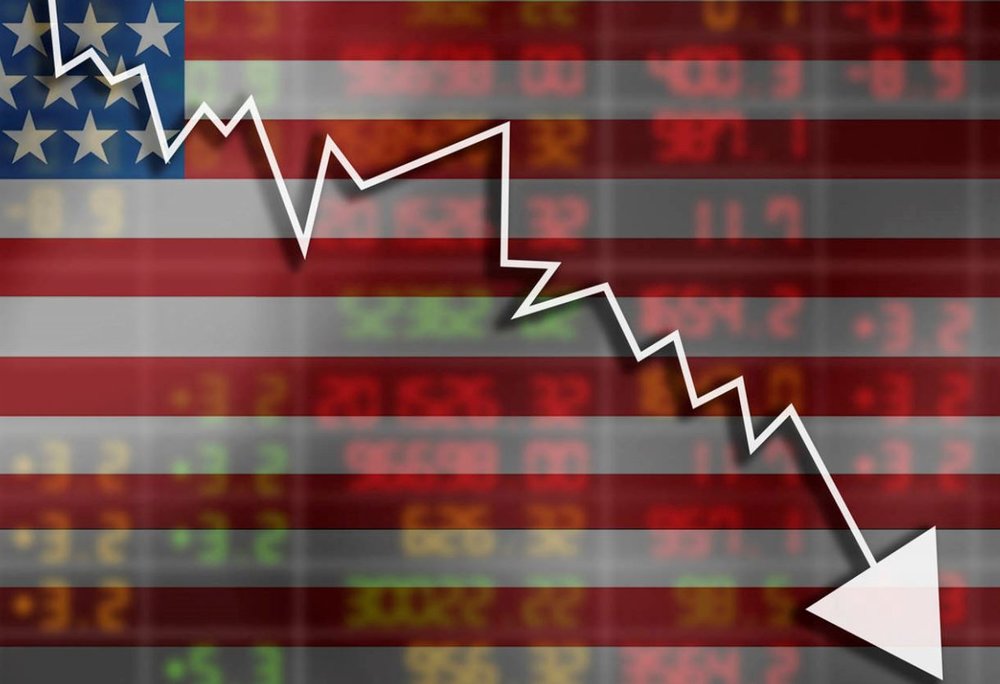U.S. losing its technological and economic might

TEHRAN - According to Alibaba group co-founder Jack Ma, U.S. has spent $14.2 trillion on 13 wars during the past 30 years. Bloomberg recently reported that the U.S. spending will exceed its revenues by $804 billion in the fiscal year through September and till 2020. U.S. budget deficit is estimated to surpass $1 trillion and country’s debt has already crossed $21 trillion mark.
All is not well with the world’s so-called ‘superpower’. Many top U.S. lawmakers and entrepreneurs have expressed concerns over new economic recession which may hit the country at the end of 2019 or in the first quarter of 2020.
Iran’s Islamic Revolutionary Guards Corps (IRGC) Brigadier General Hossein Salami was right when he said recently that the U.S. has lost its capacity both militarily and economically to enforce any aggression against Iran. These are not conspiracy theories but experts sharing their views regarding the slow and painful demise of the U.S. war machinery.
The U.S. holds shadowy business practices by China responsible for its economic misery and Iran’s influence in the Middle East for the destruction of the region. But according to Jack Ma and Richard Duncan actually, Trumps tax overhaul, trade war, aggressive quantitative tightening and excessive spending on wars are primary reasons for the U.S. decline and the destruction of sovereign nations like Syria, Iraq, Libya and Afghanistan.
Back in 1973 when Henry Kissinger struck a deal with the Saudi monarchy that resulted in the birth of petrodollar scam, it provided the U.S. with access to the unlimited money supply. Since then U.S government is running huge budget deficits without any substantial inflation and the same money power has been used to oppress the legitimate governments across the globe. With the American military might facing embarrassing defeat in Afghanistan, Syria and in Yemen, now its Ponzi scheme (creditism) of unlimited money supply that fuels America’s war machine is threatening its economy.
Since 1973 the nature of the global economy has shifted from capitalism to creditism where economic growth depends on accelerating credit growth. During 1970s, U.S. dollar standard replaced the Bretton woods quasi-gold standard and soon after that U.S started to run extraordinary larger trade deficits. The U.S imports skyrocketed and in reaction, the exporting countries were flooded with U.S. dollars.
Corporate CEOS, Bankers and U.S government enormously benefitted from this fraudulent system and allowed the U.S. military industrial complex to finance their war machine throughout the globe. These budget deficits and paper money creation created a bubble which lasted for three decades and finally bursted in 2008. Later a $3.5 trillion dollar quantitative easing injection saved the global economy from falling into the recession.
Now the Fed has reversed its course of action by introducing quantitative tightening which is creating the shortage of U.S dollars into the global economy which in turn has strained the emerging market economies. The future prospect is even worse as the recent statement by Fed chairman Jerome Powell indicated a stricter quantitative tightening policy. According to economist Richard Duncan and strategists from JP Morgan, the quantitative tightening can land the U.S. and global economy into a new recession.
Currently, the U.S economy is facing a precarious situation where the private sector does not earn enough to pay the interest on already borrowed loans. On the other hand, government sector can expand its debt but they have actually decided to contract it by adopting the quantitative tightening thus creating the liquidity crisis in the U.S and all around the globe whose effects are quite obvious to notice from the depreciating currencies in the emerging market economies.
According to economist Edward Griffin, U.S. has exported its inflation to other countries through the contemporary fraudulent monetary system. The Ponzi scheme of numbers cannot last forever and there is an unavoidable default in its way unless the U.S. shifts its focus from endless wars and oppression to a more productive approach. Given the hard-nosed policies of Trump administration the chances for transition to a peaceful approach seems very unlikely.
U.S. deficit spending combined with bad economic decisions is threatening its economy and on the other hand, U.S. dollar is just a few short years away from losing its global dominance according to the investor, Jim Rogers. The U.S. has already lost its manufacturing capacity by offshoring its production facilities that have also transferred the technical expertise and other skills to developing nations like China.
In a new era of artificial intelligence and blockchain technology, dollar hegemony has little to do with global superiority and the leaders of these emerging technologies will decide the direction of the global economy and politics.
According to some experts, artificial Intelligence is a new yardstick to measure the country’s economic prosperity. In a report by CB Insight regarding AI trends for 2018 China has surpassed U.S. with respect to the preferred destination for AI investments and in the case of deep learning, China has registered six times more patents than its rival U.S. American startup ecosystem research organization “Startup Genome” in 2018 reported that China holds four times more patents in artificial intelligence and three times in blockchain as compared to the U.S.
Huge manufacturing base and the largest population of China is going to provide an edge to the country in emerging AI and Blockchain based economy. It has been estimated that productivity will contribute $6.6 trillion and the share of consumption side will be $9.1 trillion in a total $15.7 trillion economic growth that is expected from AI and Blockchain. So, the focus is shifting from the U.S. to China.
Writer is a Kashmir-based student and researcher. He can be reached at mudasir.shk01@gmail.com
Leave a Comment